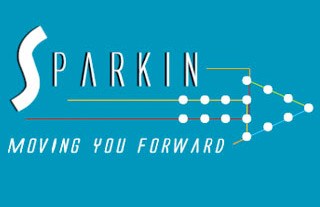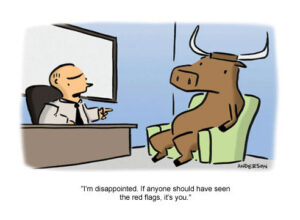
Narrate Newsletter
Topics
- Adaptability (29)
- Barriers to Success (17)
- Career (1)
- Career Optimization (90)
- Career Planning (13)
- Client Side vs Agency Side (7)
- Empathy Award Winners (10)
- Freelancing (6)
- Great Places to Work (4)
- Humor and Music (1)
- Job Searching (35)
- Job Security (23)
- Personal Branding (7)
- Purpose-Driven Brands (5)
- Soft Skills (77)
- Strategic Planning Market (21)
- Strategists (29)
- Trends (11)
- Trusted Advisor (27)
- Uncategorized (4)
- Virtual Work Considerations (3)
- Work Life Balance (32)
- Working Overseas (1)
Do you want to show up more creatively for your clients and your colleagues, your family, and your friends?
Do you want to default to thinking about opportunity versus focusing just on problems?
Discovering Hope is full of proactive steps you can take right now, to achieve a more positive mindset or to help maintain the positivity you already have
Getting Positive reveals that more optimism is close at hand


Barriers to Success
The Oscar for Self-Awareness Goes To…You?
As we approach the Oscars, no few fictional accounts would be more surprising than the 2016 reality that is the Hamar tribe of southern Ethiopia. There, the rites of passage to becoming a man include the tribe member running naked, over the backs of five bulls held together by other tribal members. If the individual can run backwards and forwards three times without falling off, he achieves manhood.
In support of this effort, during the afternoon before the bull running attempt, to prove their strength and solidarity, female relatives seek out male adults and aggressively pursue the men to hit them with a cane! Further when they are struck and scarred they are happy and smiling and when they are not, they overtly disappointed.
Rewards and Punishment – Rewards are not the same for any one person (or tribe) and the same rewards’ value can vary at different times. Society defines what rewards and success are. Conventional thinking here in the west is unofficially defined as being ‘big!’ (Office, car, salary, title) But, big for you can be (self-esteem, knowledge, free time, family, spirituality, learning).
There is no ‘right’ or wrong reward. That said, what is failure for me is a lack of self-awareness as to what we regard as reward and what is a punishment. Without this self-knowledge you will not recognize a great opportunity, even when presented to you.
Growth and Nemesis – When you think about it, there are only two career directions. Forwards or backwards, progression or regression! And, growth, or stagnation, do not manifest in an orderly fashion but tend to be staggered, altering as we are confronted by major challenges or crossroads.
When they say that life is ‘all about timing’ they are really saying, prepare for the next crossroads! And, when I talk with anyone that is at or approaching a career junction, while they think they are talking about being bored or frustrated or at a lack of pay rise or new opportunity, they are in fact talking about their lack of growth: Financial, technical, vertical, interpersonal, managerial.
So, what is forwards for you? What does growth look like?
Time – Are you making effective use of it? -Would you say that you are going through the motions, versus using your time effectively either in what you are creating now or through where the current experience will take you? If you know you could do more, much more, you owe it yourself to step up and to be more proactive. And, this is the best way to prepare for the next job (as you are more likely to be noticed when energetic/proactive.) Then again, perhaps you are you unsure whether you are using your time effectively.
What’s needed to effectively assess your own situation? – Dependent on who you ask and based on their agendas, you will receive multiple perspectives on whether you are a huge waste of space or a pillar of the business. Impartial mentors and advocates are great to have in your lives but if you don’t, you need to find a way to effectively self-assess.
To effectively self-assess you need from time to time to get out of your ‘daily skin!’ Getting context and perspective on how things are really going for you is key to knowing anything. The quality of the assessment is also important, so a quality chance to reflect is key. Earthing encapsulates a broad ability to see clearly, to feel every day and truly enjoying your existence. Living in this mode is a combination of skills and habits that take time.
Personally I find remote travel a great way to look back on my life (away from the daily fray) and dispassionately assess what’s working and not, how I want so spend my time and don’t, the impact I hope to make through my work and am currently making or not!
How do you know if you’re on track? – Goal setting is part of the answer as is intermittent assessment of those goals, of who you want to be and the actions you want to experience. As important you need to be ‘actively’ involved in your own development on an on-going basis, not just occasionally.
Mindfulness/AKA Not going through the motions like an automaton – Along with intermittent time out reflection and assessment, we all need on an on-going basis, a true sense of self, which some refer to as mindfulness. For me, this is all about not being a robot! Not going through our lives unconsciously but the opposite! And if we know there is a poor quality to our day-to-day life, we pursue this course knowing what we are making the sacrifice of poorly spent time for. This understanding then justifies the time usage. That is, if we put up with boring, frustrating work, in growth-unfriendly environments, we do this knowing at some stage there is a pay-off, for us!
Mitigating Risky Career Maneuvers
If you’re an uncomfortable ‘back seat’ driver, you’re someone that either doubts the ability of the person at the controls and/or, you just feel you’re not safely going to get to your destination in a certain timeframe.
Typically, you are frustrated at not being in control of the velocity or direction you are going, so you do what back seat drivers do best, direct the driver from the ‘non-driving seat,’ never a satisfactory experience. The alternative is to drive the car.
Many ‘back seat’ drivers’ show up similarly in the context of work and career progression. That is things evolve or happen organically, with them playing a bit part in the motion of their own career progression rather than directly controlling their own destiny. They neither map out or devise a platform for their own happiness if not, career success. (Career success and personal happiness are not always concurrent!)
Why does this happen so often? And, what can you do to make sure you drive?
Why we fail to map out a path for our own success/Open Ourselves Up to Risky Career Maneuvers?
Loyalty v blind loyalty – Your loyalty to the agency you work for should be expected! You have a role to play and you should deliver against it, 100%. That said sometimes even when you do this, you can lose your job. That is, for business reasons the agency will ‘let you go.’ It is not blind to economic circumstance and will retain your services based on its needs. Similarly, neither should you be blind to your need to grow and progress. So, if you are not developing or achieving things that are important to you, it would be crazy not to either seek to get those things where you are and failing that, to look for them elsewhere.
Job focus – In your effort to do a great job, to be a great team player and to deliver the results you are set, you tend to be focused on the short term. And, while short term focus and learning are at times critical, so does a need to see the road ahead, if you are to safely and optimally travel. The need to find time for thinking, to know what you are working for and what skills and experiences you will need to get there are key. If you know what skills, experiences and connections you need, then you can begin to factor them in to your work or request that they are.
Want to be flexible/maximize options – Being open to where your career path can go is to be encouraged. Being open to the opportunities an employer might deliver should also be applauded. That said, doing so without a clear sense of what you are working toward, without knowing what a great next career challenge looks like is just stupid. It’s like sitting in the back seat of a car, except in this case there is not even an attempt at ‘virtual driving.’
We rely on others/feel we are special and therefore will be looked after – If you have a fantastic boss then you are lucky. The reality today, very often bosses may well care but typically they don’t have the time to do the advocating you’d hope for. You are the only one fully vested in your success. So, you can’t rely on being liked or effective! You must assume that you have to navigate and drive your career forward.
What can we do to optimize your career trajectory?
Know what you are working for/Personal Mission – If you have a personal sense of mission, you will then have a much better sense of what knowledge, experience and connections you need to achieve that mission.
Know what experience you need to have next – Knowing what you are working for, you will have a much better sense what is the next challenge you need to experience on the road toward your ultimate goal. Which skills and experiences do you need to enhance? What challenges do you need to embrace? What environment might best equip your learning?
Make your current work situation work for you – If you know what would be an optimal use of your time in the pursuit of your goals, you will then be able to effectively pursue that experience in your current working environment.
You will also be able to negotiate effectively when you have a review as you will know what matters most to you and relatively what you can be relaxed about. And, you will also be able to understand how good your chances our of achieving your goals in your current agency versus proposed alternatives.
Knowing which resources and opportunities to pursue whilst delivering on the role you have been hired for, is the optimal springboard for your progression. It is the ultimate way to avoid risky career jumps. Being conscious about your goals and needs will you give your employer every chance of making you happy and more important, every chance of you achieving your definition of success.
What’s Your Barrier To Career Success?
‘The indispensable first step to getting the things you want out of this life: Deciding what you want.’ (Ben Stein)
In the March edition of ‘Narrate’ I asked whether full job security is possible, and suggested the biggest challenge is not your employer, your boss, the cyclical nature of business, it’s you!
It’s not that we professionals are not capable, it’s that we don’t fully appreciate how, where and the extent to which we add value. These are the levers we must apply to advance our careers but most of us are blind to them.
In the absence of self awareness, we rely on others – HR and perhaps a benevolent boss – to drive our careers. The problem is, they are swamped with short term demands and can’t play the role they once did. Consequently, self reliance is paramount.
The articles here give some useful commentary and might provoke a few thoughts, and as ever, I’d be happy to talk things through with you.
Stuart
Articles and commentary that might be of interest…
- Building The Right High Potential Pool How Organizations Define, Assess, And Calibrate Their Critical Talent
- Which Of These Mistakes Do You Make —That Successful People Don’t?
- Understanding How The World Sees Your Fascination Advantage
- Top 12 Career Barriers 2013
- What People Say Barriers To Being Successful Are
- Managing Yourself: Stop Holding Yourself Back
- Now Is Our Time –How Women Hold Themselves Back
- Women Rising: The Unseen Barrier
- Five Things People Do To Hurt Their Careers
- Why Smart Guys Get Stuck In Ruts –And What To Do About It
- A Career Reality Check For Women: Being Good Isn’t Good Enough—you Need To Grab The Mic
Lost and withered on the vine or Simply Submerged Skills
”People who have the opportunity to focus on their strengths are six times as likely to be engaged in their jobs.’ (Tom Rath). And if you are engaged in your job, I’m sure any number of other surveys will reveal how much greater your chances are of being successful, in whichever way you define success.
For most of us, daily reality dictates very often that we do what we need to do simply to get the job done. That’s fine, but if that ‘needs must’ focus takes over your work-life, far from utilizing your key strengths, you may find that skills not only become submerged but underutilized skills become rusty and worse still, wither on the vine.
Job Search – Keeping Motivated
Getting your next job ideally is a seamless experience, ideally stepping from one to the next challenge. But at some stage in our lives it might not work so smoothly and I know through talking with a number of you, there are some dark days of self doubt. Some uncertainty on the inexorable path to the next challenge, which isn’t happening fast enough for you. So note the following:
Remember, on a ‘challenging day when you are your less enthusiastic self, when the job hunt is grinding you down, or for that matter the unreasonable client, it is your energy last week/month that makes things happen for you; This is the reason for the phone call you get on the challenging day that brings about the great connection, thought, meeting or interview you really want.
Progression comes from your energy focused on pursuing new contacts, developing new ideas/solving business problems, writing a new blog, attending a meet up. It is when you drove yourself forward, perhaps apprehensively, somewhat lacking in confidence but you did anyway.
So even when you are feeling less than motivated, remember it is not about one off days but a general persistency and consistency of initiative on your part. It is about the totality of energy you put out. And, if you are energetic enough (albeit in a focused way) there will be a natural flow of activity and fewer challenging days.
Let me know what yu would advise individuals to do to keep themselves motivated. Thanks, S










